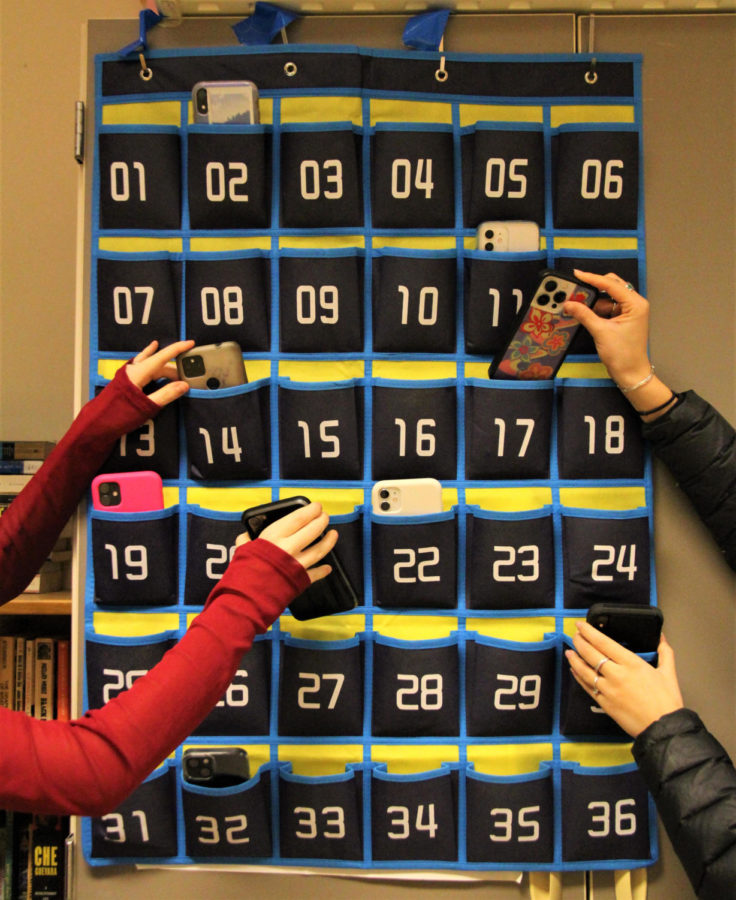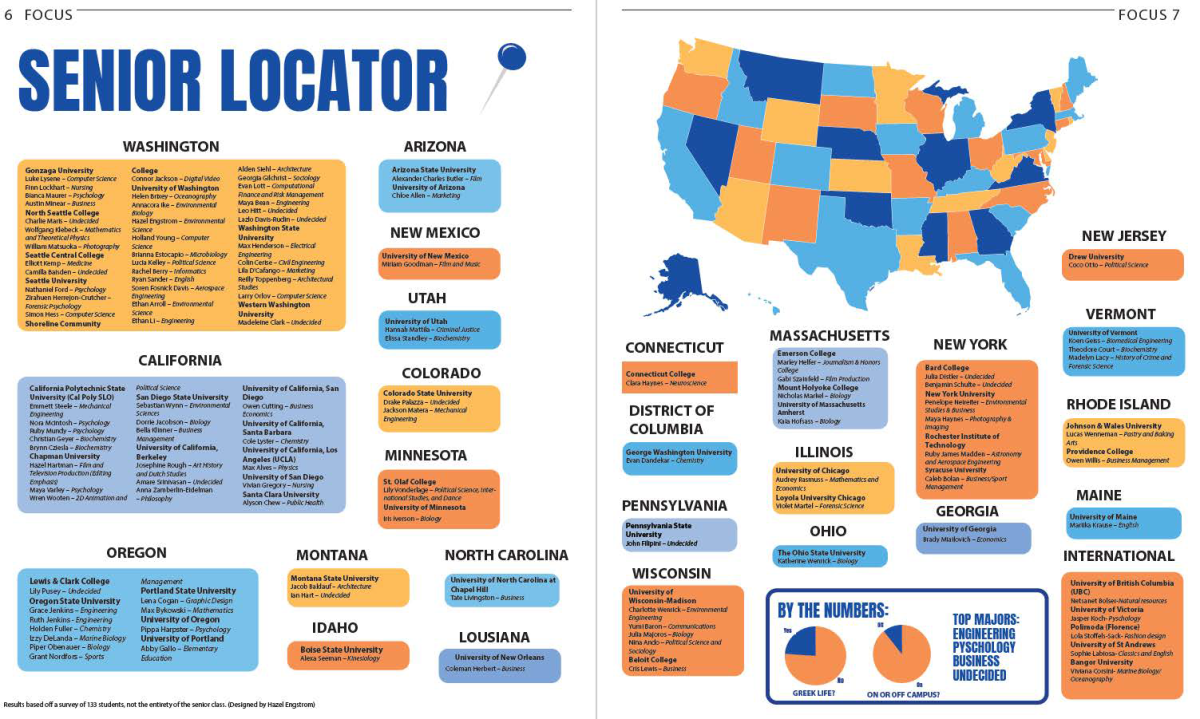Mixed student and teacher opinions on phone use in the classroom
Students and teachers come together to weigh the pros and cons of phones at school
Students place phones into numbered hanging pockets on their classroom wall.
December 16, 2022
Over the past weeks, there has been discussion questioning the possibility of a school wide phone policy. This discussion is still very much up in the air, and it is undecided whether or not a policy is even going to be put in place. One reason it may not happen is because it is very hard to get all students and teachers on board for the same idea that would affect everyone’s day to day life. However, it has become abundantly clear to teachers and students that phones are one of the biggest distractions in the classroom, pulling people away from their learning.
Recently, a survey was sent out to the student body asking basic questions about phones. Students were asked if they find they are good at monitoring their phone use, along with their peers. The survey also asked if students see that using phones while someone else is talking is disrespectful or not. Sophomore Sophie Labiosa had mixed thoughts about whether phones are a distraction at school.
“I think it depends if they’re being actively used for school in the classroom. They can be helpful, but I do quite often see many people on their phones for things that are not related,” Labiosa said.
While people might recognize the obvious problem of phones in the classroom, it seems that avoiding the problem is the solution for many students. Sophomore Alice Berman agrees with this observation.
“I think for me it’s a distraction and for other people it is also a distraction, but I don’t think they should not let us have them,” Berman said. “[The school] can’t really stop us from using them, unless they take our phones.”
Teachers have many classes throughout the day, allowing them to observe why certain classes use their phones more than others.
“My class that uses the phone the most is also the classroom they don’t talk to each other in,” Oana Rus, a math teacher said.
The correlation between phone usage and socialization is something more teachers are noticing. To address this, teachers are introducing more hands-on activities within the classroom so that there is less down-time and more opportunities to get to know each other.
So, what would even be in a phone policy if there was one? This seems to be the big question stopping the school from creating one. On one hand you have the student’s perspective, who often believe phones are a distraction but still want to use them. On the other hand, teachers notice how much phones affect students’ learning and they want the distraction to go away.
Rus was conflicted in her thoughts on a potential policy.
“I think there should be some kind of policy, but it’s hard to get a universal decision, so it really depends on the teacher’s teaching style,” Rus said. “Long term, I feel like phones create more isolation and stress for students.”
While there is potential for a possible school wide phone policy at Ballard, the conflicting perspectives are preventing one from falling into place just yet. As of right now, it is just a time to learn and adapt as teachers are figuring out the best way to tackle phone usage within the classroom.




















